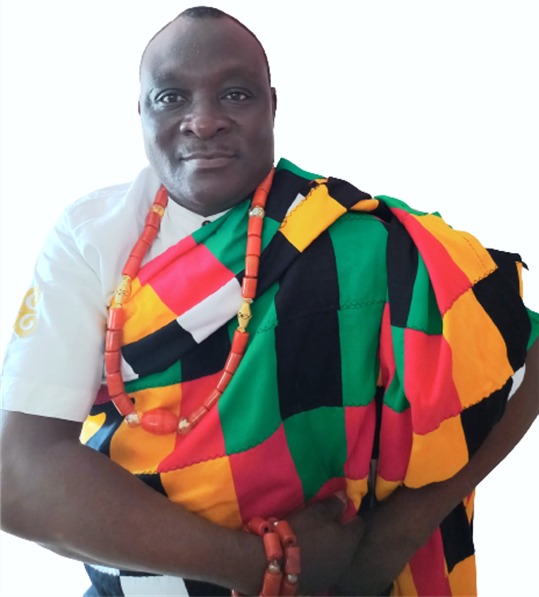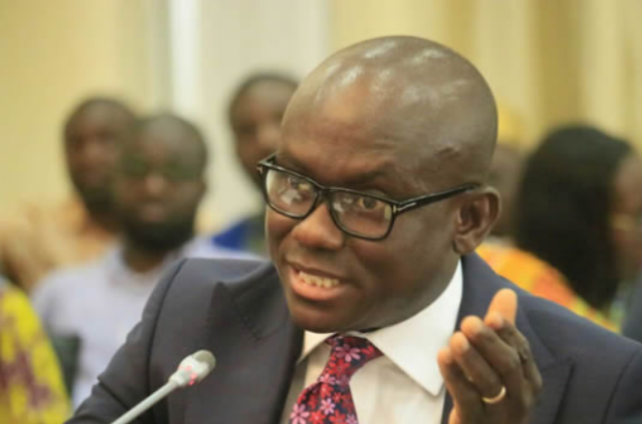Introduction
Since the inception of republican constitutional rule in Ghana, the four Republican Constitutions, 1960 (Article 47), 1969 (Article 68), 1979 (Article 74) and currently 1992 (Article 88) have made provisions for the appointment of Attorney-General as a Minister of State and the principal legal advisor to the Government of Ghana.
This constitutional tradition of appointment of the Attorney-General by the Head of State and Head of Government takes exemplary roots from Article 15 of the 1957 Independence Constitution (Order in Council). Under the four Republican Constitutions (1960, 1969, 1979 and 1992), the Attorneys-General of Ghana have all combined the position of the Attorney-General with that of Minister for Justice.
As such, the Attorney-General has been appointed by the President and thus answerable to the President in the performance of his or her constitutional duties. Knowing that the Attorney-General must be an apolitical and neutral legal advisor to the Government of Ghana - and not to advise a given Administration at the helm of governance- , is it not better that the Attorney-General is elected by the people rather than be appointed by a certain political party that has formed government? Is it also not rather a good governance approach that the tenure of office of the Attorney- General should not be coterminous with the four-year tenure of the President?
Unfortunately, the report of the 2011 ten member Fiadjoe Constitutional Review Commission - constituted by the late President Mills - has not touched on matters relating to the appointment or election of the Attorney-General.
It rather touches on the decoupling of the Attorney-General’s Department from the Ministry of Justice subject to the President’s discretion.
Contrarily, I choose to rather redirect the debate to the election of the Attorney-General (A-G) by the people rather than making the A-G an appointee at the pleasure of a sitting President.
Attorney-General in the Fourth Republic
Article 88 (1) of the 1992 Constitution provides for the position of Attorney-General of Ghana who shall be a Minister of State and the principal legal advisor to the Government.
Mindful of the fact that the A-G is a presidential appointee, the Constitution also provides under Clause 2 of Article 88 that the “Attorney-General shall discharge such other duties of a legal nature as may be referred or assigned to him by the President or imposed on him by this Constitution or any other law”.
One may observe through reference to the previous Republican Constitutions that appointment of A-G and its related matters in Article 88 of the 1992 Constitution is the product of modification of similar provisions or renditions in the 1960, 1969 and 1979 Republican Constitutions.
Said differently, the constitutional status quo of the President appointing the A-G as a Minister of State has since 1960 been preserved over the years until the current era of the 1992 Constitution, our supreme law.
Required Neutrality of the Attorney-General
Just as the Constitution (Articles 125, 128, 136, 139 and 142) make the Chief Justice as the Head of the Judiciary and a Justice of all the courts and Regional Tribunals of Ghana, Article 88 (6) of the Constitution mandates the A-G to have audience in all courts in Ghana.
Article 88 (5) of the Constitution also makes the A-G responsible for the institution and conduct of all civil cases on behalf of the State; and all civil proceedings against the State shall be instituted against the Attorney-General as defendant.
Article 88 (5) in my view mandates the A-G to be neutral because he or she is constitutionally required to be a defendant in civil cases regardless of the political affiliation of the other parties to a given civil case.
If this submission is anything to go by, then it is justified to argue that the A-G should be elected by the people rather than be appointed by the President who is politically coloured even though he is the Head of State.
Sadly, per Article 88 of the 1992 Constitution, the convention has been that all the Presidents of the Fourth Republic (from J.J. Rawlings to Nana Akuffo Addo) have appointed the Attorney-General from their political parties.
I admit unhesitatingly that the essence of suing the Attorney-General in civil cases per Article 88 (5) of the 1992 Constitution is that he or she must be the nominal or titular defendant rather than making the A-G assume liability in such cases. Be that as it may, the appointed and politically tainted A-G has the authority to influence a civil case with partisan interest whether he or she is a nominal defendant or not.
Decoupling the position of Minister for Justice and Attorney-General
As indicated previously, Article 88 of the 1992 Constitution relates to the appointment of the Attorney-General and Minister of Justice.
However, a joint reading of Articles 88, 94 (3) (b) and 190 of the Constitution would make one believe that what is referred to as the Legal Service in the Constitution is the Attorney-General’s Department and not the Ministry of Justice. It means, therefore, that another name for the Legal Service (which is a Public Service) is the Attorney-General’s Department.
If so, then why must the A-G be a partisan political appointee rather than an elected officer? Time and again, some litigating Ghanaians have the cause to accuse one A-G or another for influencing civil cases with partisan interests rather than with neutral interests. Electing the A-G may be a lasting remedy to such accusations.
Surprisingly, regarding the matter of separating the Office of the Attorney-General from the Minister of Justice, the Fiadjoe Constitutional Review Commission (CRC) has not boldly solved the age-long problem. This is because the CRC admits that central to the argument for the decoupling of the office of the A-G from that of the Minister for Justice is the need to ensure the political neutrality of the A-G in his prosecutorial functions. Contrarily, the CRC recommends that the practice of combining the offices of Minister of Justice and Attorney-General may be continued at the discretion of the President.
In alignment with the foregoing CRC recommendation, the Government White Paper that adopted the CRC Report states, “The recommendation that the practice of combining the offices of Minister of Justice and Attorney-General may be continued at the discretion of the President is noted, but Government also notes that it does not require a constitutional amendment.” If it is true that decoupling the said two Offices does not require constitutional amendment, then why is that Former President Mahama and President Akuffo Addo have not been bold to separate the two offices during their respective tenures? I think the Fiadjoe CRC has not helped matters at all under the subject matter. It is unfortunate that the CRC treated with kids’ glove, such a thorny issue which is the pivot of years of unending debate.
Among other germane factors, the CRC’s recommendation ut supra was based on its observation that the 2011 Attorney-General and his predecessors that appeared before the Commission argued that the status quo should be retained because decoupling the offices of the Minister of Justice and Attorney-General is not practicable. This in my view is tantamount to the age-long politics-administration dichotomy. Again, it appears to me that the former and current A-Gs at the time argued in that manner because of their parochial partisan interests.
It is obvious from the foregoing that for many years to come, the A-G portfolio will remain under the executive arm of government and continuously, the A-G who is mandated to perform constitutional duties without impaired neutrality will be appointed by the President at the pleasure of the latter.
Conclusion
Arguably, the 1992 Constitution was framed to please the military Head of State at the time the Constitution was being framed. This is because the Constitution was made when Ghana was transitioning from military rule to constitutional democracy in 1993 with the substantive military leader interested in becoming a democratically elected leader. The pleasing approach thus compelled the framing of the 1992 Constitution to give excessive power to the President who dominates every aspect of public life.
Perhaps at the time, the National Democratic Congress (NDC) stalwarts thought that the political power would never get in the hands of their opponents through an election. Accordingly, they framed the Constitution that overly empowers the Executive arm of Government and when they had the opportunity to form a CRC to review the Constitution, they did nothing to amend it using the CRC report.
Till now, all of us including members of the NDC cry foul that the Constitution needs review because some of its provisions are not reflective of good governance principles. Naturally, most leaders prefer unfettered power hence but for the existence of laws that frown on ouster clauses, political leaders of Ghana especially would like to dictate every aspect of public and even private life of the people of Ghana. As such, it appears that a review and amendment of the 1992 Constitution to take certain powers away from the President has become a mirage. Article 195 of the Constitution for example mandates the President to be the overall appointing authority into the Public Services aside Article 71 which has been abused in availing salaries and allowances as well as other facilities and privileges to certain constitutional office holders.
Despite this unfortunate trend of affairs, I submit that the Attorney- General of Ghana should be elected by the People in a general election and not appointed by the President at his or her pleasure. ~ Asante Sana ~
*************************************************************

About the author; Philip Afeti Korto is an Hospital Administrator. Email: afetikorto@yahoo.com
Latest Stories
-
5G or lose license: Government issues final ultimatum to NGIC as Q4 2025 looms
5 minutes -
Mpraeso MP pushes for affordable internet data with fixed monthly charge
1 hour -
Family seeks justice for private security officer killed at Gomoa Akoti
2 hours -
2024 electoral violence: Mahama exerts pressure on IGP to finalise probe
3 hours -
Gong Gong Awards set to make waves worldwide as AAG Executive Director Isaac Cudjoe unveils global vision
3 hours -
Miracle in Madina: Woman declared dead in Hajj returns home, stirring community shock
5 hours -
Mobus CEO apologises to Nigerian Police over Abuja land row, distances firm from protest at Nigerian High Commission in Accra
7 hours -
Experts urge institutionalisation of evidence-based health policies in Ghana
8 hours -
Government to convert National Cathedral site into National Cultural Convention Centre
8 hours -
Former Sports Minister Mustapha Ussif loses sister
9 hours -
Ayoum community appeals for fixing of collapsed bridge to ease commuting
9 hours -
Full text: Mahama’s speech at the Post-Election Evaluation Dialogue
9 hours -
Kumasi: 545 police personnel pass out to support 24-hour economy
9 hours -
No Ghanaian child will be denied tertiary education because of fees – Mahama
9 hours -
Ghana, U.S. reaffirm strategic ties at 249th Independence Day celebration
9 hours

